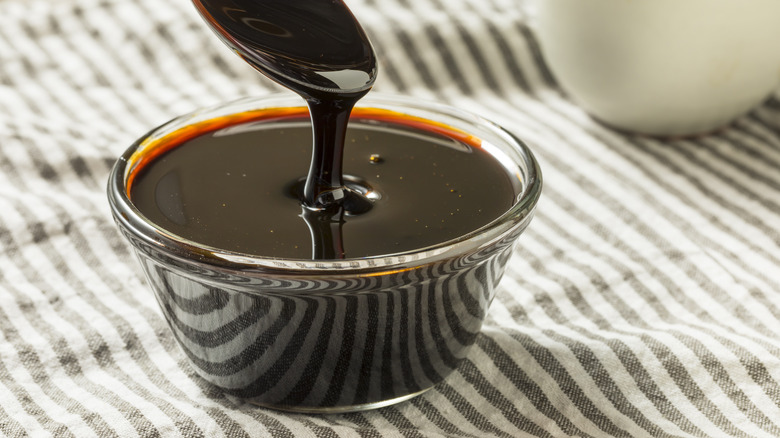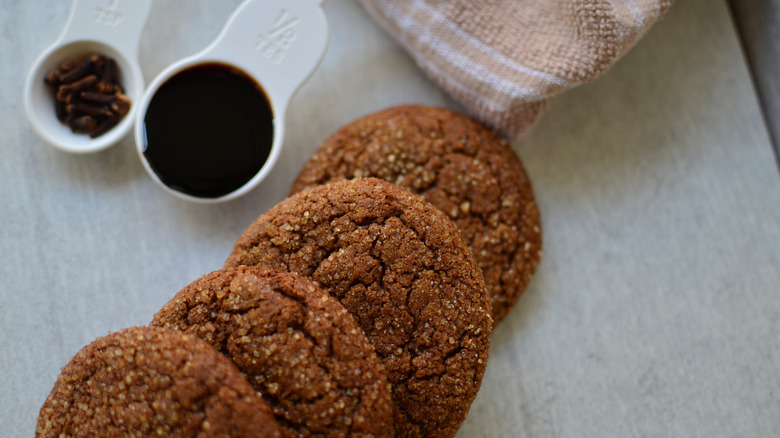Why You Probably Shouldn't Refrigerate Molasses
Molasses, that thick, dark syrup your grandmother uses to make her famous, homemade molasses gingersnap cookies or the not-so-secret ingredient your dad adds to sweeten his barbecue sauce, is a pantry staple. Lovers of this ingredient can find it in slow cooker baked beans, Boston brown bread (via The Seasoned Mom), and in "Spring Baking Championship" judge Kardea Brown's green beans and crunchy bacon dish, per People.
Molasses is versatile. This sticky syrup-like substance is a byproduct of the sugar-making process, per Medical News Today, and is often touted as a much healthier sweetener and digestive aid. In fact, if your grandparents grew up in the 1930s, they probably got a teaspoon of molasses to help with their tummy troubles, according to The Paleo Mom. Molasses comes in a variety of shades and thicknesses, per Kitchn, and can be used in many different manners depending on your baking needs and flavor goals. The thicker the molasses, the less sweet to the tongue.
But when it comes to storing this magic liquid, you might want to think twice before putting your molasses in the refrigerator.
It won't be an easy pour
Molasses is thick. Put it in the refrigerator and allow it to become cold and more like a solid, and it is going to take you forever to pour out the amount you need in your measuring cup, per Does It Go Bad? While keeping molasses in the fridge will help maintain its quality, you'll need to add some extra time to your recipe prep to bring the molasses to room temperature before you start using it. Does It Go Bad? suggests two hours will do the trick, but you can also stick it in a pot of warm water if you are in a hurry.
How long does molasses last? According to the United States Department of Agriculture, if you have an unopened jar of molasses, it can be "stored at room temperature for 12 months." That said, once you open it, and if you store it at room temperature, you will want to use it within six months.

